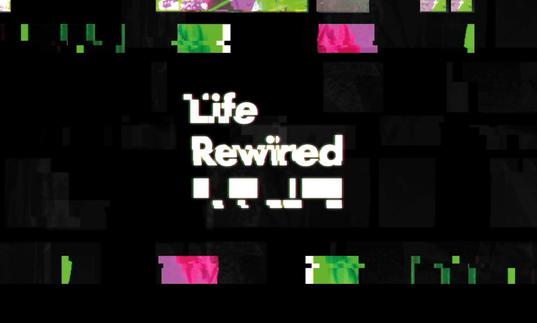Humans have a morbid fascination with imagining dystopian futures filled with dominant robots, so asking whether a machine will ever be truly creative is a narrative that frequently comes up. It’s an interesting question, but more pertinent for right now is to consider what our scientific and technological advancements will mean for how we create art. Is there a revolution on the horizon that’ll radically alter our own creativity, or even our perception of what art is?
Composer and Royal Northern College of Music (RNCM) professor Emily Howard is a graduate in mathematics and computer science from Oxford University, and has combined her loves of maths and music as Director of the RNCM’s Centre for Practice and Research in Science and Music.
I wonder if in the future I will be writing algorithms for what I want the end result to be
‘I’ve always been highly interested by algorithms,’ she says. ‘When I’m composing, I often use them to create a musical framework that I then mess around with to produce something much more pleasing aesthetically. Increasingly I’m working with more complex algorithms which produce results that are closer to where I want them to be. I wonder if in the future I will be writing algorithms for what I want the end result to be.’
While he doesn’t believe there’s one single piece of tech that’ll transform art-making, theoretical chemist and Royal Society Research Fellow, Dr David Glowacki, says four key disciplines are likely to have an impact: ‘Machine learning, VR, blockchain and epigenetics. This is the idea that environmental factors affect hereditary traits passed from generation to generation.’
He says what links these seemingly disparate developments is that they cause us to rethink our relationship to ourselves, our society and our environment.
Professor Chris Salter, Concordia University Research Chair in New Media, Technology and the Senses is the Barbican’s consultant on Life Rewired. He says, ‘It’s wrong to think technology comes before culture. Culture already embodies technological change and transition. Technology is more evolutionary than revolutionary, despite the fact everyone wants to call it a revolution. Before a tech shift happens, there’s already something going on in the social or economic fabric of our lives.’
He adds, ‘AI will change some approaches to art, in particular the way we think about the agency of a machine system. This gives you ways of thinking about your own position in relation to the broader world.’
Technology is more evolutionary than revolutionary...
Glowacki also thinks AI will have a significant impact. ‘One of the most interesting things about machine learning is the artistic consequences. It’s causing us to imagine our brains using mechanistic vocabulary. People today are getting comfortable with the idea of their brain as a machine. Philosophically it could be very problematic to think of your brain as a deterministic thing, because once it becomes “a machine”, where does that end up ethically? It raises all sorts of questions about agency.’
Salter agrees this is likely to be a rich source of inspiration for artists, especially as our understanding grows of how machines learn. ‘I think we’ll make some pretty radical understandings of human cognition in the next 15 years, not just from a neuroscience perspective. Computational models like AI and machine learning will help us discover more about brains and the sensory motor systems they’re connected to.’
We’ll be exploring the latest advancements in AI through our major exhibition, AI: More Than Human (16 May–26 Aug) which presents new commissions and projects by artists, scientists and researchers, including Salter. It will consider: What does it mean to be human? What is consciousness? Will machines ever outsmart humans? And how can humans and machines work collaboratively?
This last question is something one of Howard’s doctoral students, Robert Laidlow, is exploring with the BBC Philharmonic Orchestra, in a project to understand how human creativity can be enhanced by AI.
’We are investigating the use of algorithms to identify new ideas in compositions that the composer might not have thought of themselves,’ says Howard. ‘One of our aims is to see if a machine can discover interesting avenues to explore musically, in order to enhance creativity.’
And while our advancements seem to unlock creativity and new potential, Glowacki sounds a warning: ‘The technical and scientific developments we’re making today are brilliant but they’re hurtling us towards what appears to be an unsustainable future in terms of ecosystem collapse. Those consequences may be the most important thing that will inform humans making art.’
He adds, ‘When working with the latest tech, there’s a responsibility on artists to open up space for critique. If technology is used, it should raise questions in people’s minds so they continue to problematise their relationship to it.’
Are our advancements problematic or helpful? Could machines become conscious? We’ll be exploring these topics and much more throughout 2019 in our season Life Rewired.


